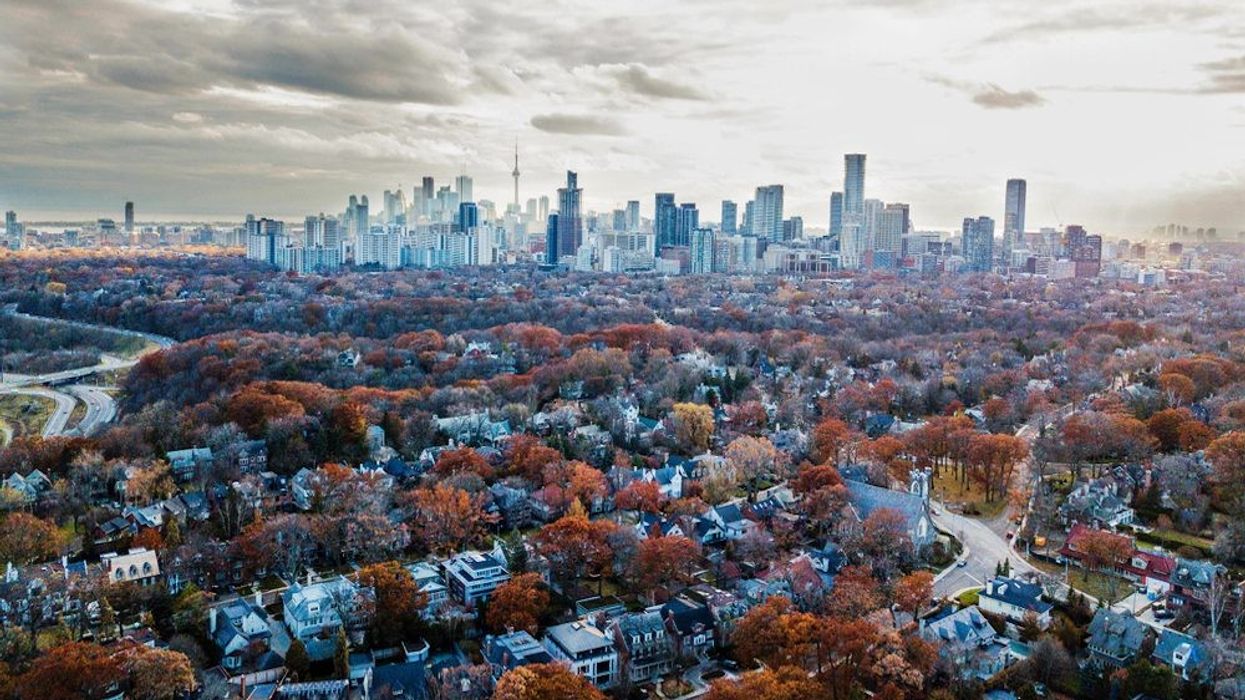The City of Toronto is tackling the housing crisis by creating new initiatives and policies that will expedite the creation and protection of affordable homes.
On Thursday, Mayor John Tory and Deputy Mayor Ana Bailão (Davenport), Chair of the Planning and Housing Committee, announced the City is considering three new programs that, altogether, will help create more than 12,000 affordable homes within the next five years.
The new policies include expanding the City's Housing Now initiative, the Multi-Unit Residential Acquisition (MURA) Program, and a proposed new Inclusionary Zoning (IZ) policy.
Mayor Tory said the City's Planning and Housing Committee will consider three reports at the end of the month, and, if approved, the initiatives will ensure more housing is built.
READ: Over 2000 Desperately-Needed Affordable and Market Rental Housing Units Coming to Toronto
"As we work to make sure Toronto comes back stronger than ever in the wake of the pandemic, these are the types of policies and initiatives we need to move forward with so that our city continues to grow and prosper and be the vibrant and inclusive city that we all love," said Mayor Tory.
"Along with continuing strong partnerships with the other governments and leading this city to a strong and enduring recovery, addressing the supply of affordable housing will top my priority list as Mayor."
According to the City, planning staff have finalized a plan to implement inclusionary zoning (IZ) in Toronto. Under the policy, the City would require that a certain percentage of affordable housing units be consistently built in new residential developments rather than being negotiated on a site-by-site basis.
Beginning in 2022, IZ would secure 5 to 10% of condominium developments as affordable housing, increasing to 8 to 22% by 2030. However, the amount of affordable housing required would vary depending on the area of the city, taking into consideration housing market analysis and applicable densities.
The City said the IZ units would stay affordable for at least 99 years, and rents and ownership prices would be based on proposed new income-based definitions of affordable housing. The IZ units will target households with an annual income between $32,486 and $91,611, which includes individuals such as early childhood educators, dental assistants, and bank clerks.
While IZ is widely practiced and is used in more than 800 jurisdictions in the US, Australia, and Canada, if the City's plan is approved, Toronto will become the first city to use it in Ontario.
While, in theory, IZ might sound like a fair policy solution to help address the housing needs of Toronto residents, a report from the Building Industry and Land Development Association (BILD) revealed there are "deep flaws" in the City's proposed approach. The report found that the City's plan will only "achieve affordable units at the expense of the costs of market units." Based on economic modelling, the cost added to a market unit to subsidize an affordable unit will be an additional $65,000 per unit and $116,000 per rental unit (lifetime).
READ: Inclusionary Zoning Policy in Toronto Will Cost New Homeowners $65K More Per Unit
The City says it's also looking to expand its Housing Now program to Phase 3. Approved by council in January 2019, the initiative uses under-utilized City-owned lands to develop affordable rental housing within transit-oriented, mixed-income, mixed-use, and complete communities.
Now, Toronto's Planning and Housing Committee and council will consider the recommendation to expand the program to include four additional sites as part of the program's third phase. The new sites include 2700 Eglinton Avenue West, 40 Bushby Drive, 4040 Lawrence Avenue East, and East Bayfront (Block R6.)
The City says these four sites are estimated to provide between 1,150 and 1,400 new homes, including between 450 and 600 affordable rental homes.
Finally, the City says it's exploring a Multi-Unit Residential Acquisition (MURA) program that will provide grant funding and Open Door Program incentives, which offer exemptions from property taxes and waive application fees, to qualified non-profit and Indigenous housing groups.
The MURA program will assist the groups purchase and renovate existing market rental properties to ensure they remain permanently affordable rental homes for Toronto residents with low and moderate incomes.
Additionally, the MURA Program will:
- Help protect existing rental properties and create permanent affordable rental homes
- Improve housing stability for current and future tenants
- Improve the physical conditions of buildings
- Increase capacity in the non-profit and Indigenous housing sectors
- Ensure the long-term financial sustainability of the homes
- Support the City's acquisition of at-risk, affordable rental housing that non-profit and Indigenous organizations will operate over the long term
The MURA Program will be implemented through an annual open call for a proposal process to establish a list of qualified and experienced non-profit and Indigenous housing providers. Selected proponents will be given pre-approved available funding, which would provide certainty and allow them to move quickly to secure properties available for purchase.
The proponents will have up to one calendar year from the date of approval to submit properties for consideration. And, to advance the City's commitments to truth, reconciliation and justice, it is further proposed that 20% of the annual funding allocations under the MURA Program will be dedicated to supporting acquisitions by Indigenous housing organizations for Indigenous peoples.
"We continue to build upon our experience in creating and retaining affordable housing for the hardworking residents in this city who find it hard to make ends meet. Through innovative programs and continuous improvement, we are well on our way to delivering on our goal of creating 40,000 affordable homes by 2030," said Bailão.





















